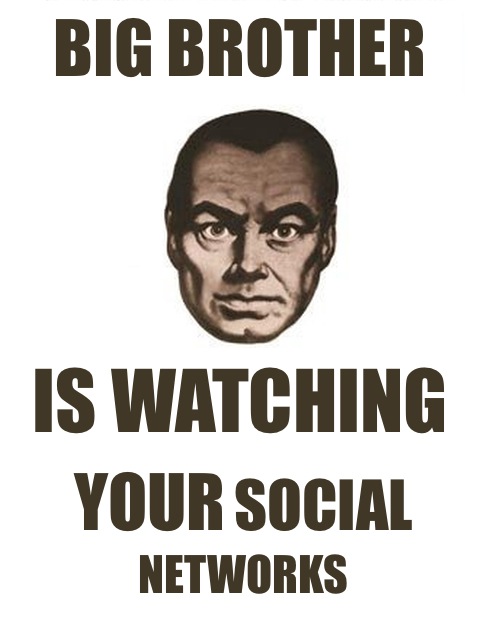Your Social-Networks Under a Microscope

There is a growing trend that has social-networking users feeling more than a little paranoid these days. Over the last year, one minor incident after another has drawn attention to and educated us on the perils of personal indiscretion on sites such as Facebook and MySpace, and services like SMS and Twitter. Internet-witch-hunts take place to weed out suspected pedophiles and racists, but exactly who is doing the suspecting, or on what evidence, is entirely unclear. Finally, now that it’s all set in and well ingrained in pop-culture, we get to bear the fruits of our complacency; from just a little off-putting through worrying and straight to flat-out invasive, three major changes are taking place in the world of social-networking right now.
The State Legislature of Minnesota unanimously voted this week that convicted sex-offenders would be permanently banned from using any system, service, device or any other communications medium that even has the ability to facilitate minors. That’s right, they can’t even use Craigslist to buy a used car, since minors are able to access the site and use its services (thereby running the risk of placing them within 1,000 e-feet of a predator). The lawmakers, being out of touch as they are, have completely failed to notice that they’ve effectively included everything from the Xbox to mobile phones in the theoretical list of objects that these people can no longer legally touch without (another) jail sentence. While many argue that this is simply the next logical step following the great MySpace Predator Bans of the last two years, it’s a bit of a leap to go from saying that convicted-predators can’t contact minors on MySpace to saying they can’t even chat on instant messaging services.
University Admissions offices recently admitted to eSchool News that they routinely scan through potential students’ social-networking profiles as part of their individual candidacy screening process; what happens to be in those profiles then becomes a factor in the decision the office makes on whether or not to admit the prospective student. Such a move is not only unheard of but has both students and their parents worried. Who decides what material is too racy for the institution? Just what may be considered too much? Surveying something as abstract as a teenager’s social life cannot possibly produce accurate data pertaining to character or potential, and as it inevitably comes down to personal tastes and moral beliefs of the screener, would be largely worthless. All else aside, they’re doing it, and it doesn’t seem very fair to the students (or parents) who have been working for years to have a shot at going to a University, just for it all to be wrecked by a two-year-old Facebook photo of the surveilled student holding a beer at a party.
Finally, in what probably will affect the highest percentage of the population; a rash of workplace-paranoia has begun to spread due to new Social-Networking Behavioral Agreements popping up around the country. One anonymous employee of a Fortune 15 company describes his experience to Slashdot. He makes a point of sharing that not only did the agreement require that he not speak ill of the company, and thus present a negative corporate image, but that he not speak ill of anything. Employees and Servicemembers of the U.S. Government and its Defense Department have been signing agreements like these for decades, but they’re under contract and it can all be attributed to public service and/or security clearances. That’s the military, these new agreements are for purely civilian companies, and many are wondering just when the line started to blur between the two. Telling employees not to broadcast company information is the right of any employer, but to tell those same employees what they can and cannot say about American Idol, or the G20 Protests, is largely uncharted territory in the civilian world. To really send the denizens of the internet into a frenzy over this new development, these agreements seem to place extreme weight on the social-networking aspect of employees personal lives; once they’ve signed the agreement, they can not only expect that their various user profiles online will be checked from time to time, but that if anything undesirable should pop up, they’ll be hearing about it the next day in the boss’s office.
Posted in Social Media News and Social Networking. Tags: facebook, privacy, Social Networking, social-media
No Replies
Feel free to leave a reply using the form below!

